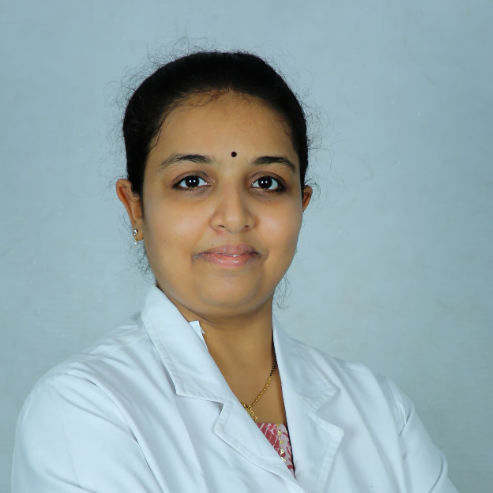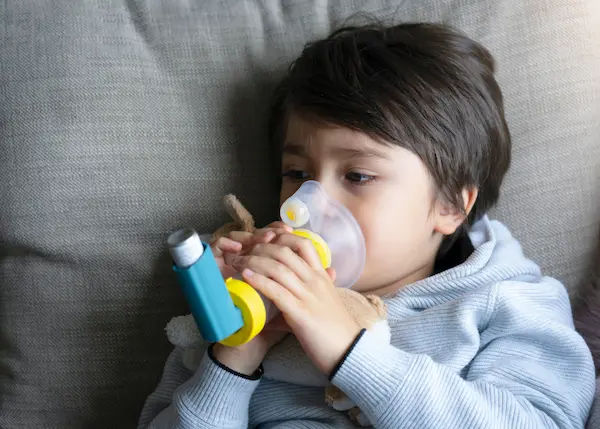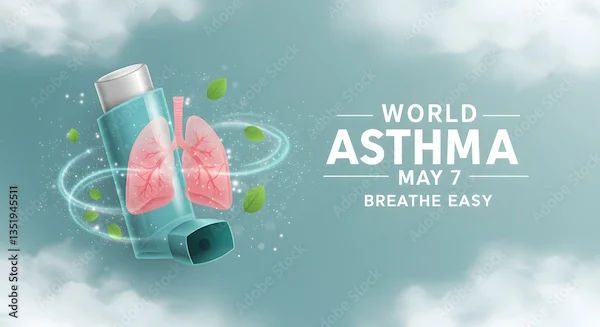Guide to The Worst Season for Your Child’s Asthma
Learn which season poses the greatest risk for your child's asthma and how to prepare. Discover seasonal triggers, prevention tips, and strategies for year-round breathing ease.

Written by Dr. J T Hema Pratima
Reviewed by Dr. Shaik Abdul Kalam MD (Physician)
Last updated on 13th Jan, 2026

Introduction
For parents of children with asthma, every change in the weather can bring a wave of anxiety. You watch the calendar as much as the sky, wondering which season will be the most difficult for your child's breathing. While asthma is a year-round condition, certain times of the year pose significantly greater risks. Understanding the worst season for your kids' asthma is not about fear, but about empowerment and preparation. This guide will pinpoint the most challenging period, explain the science behind it, and provide an actionable plan to help your child breathe easier all year long.
Introduction: Why Seasons Dictate Your Child's Breathing
Asthma is a chronic condition characterised by inflammation and narrowing of the airways. A child's airways are smaller and more sensitive to begin with, making them particularly vulnerable to environmental triggers that fluctuate with the seasons. These triggers can cause the airways to swell, produce excess mucus, and tighten the muscles around them, leading to coughing, wheezing, chest tightness, and shortness of breath. Different seasons bring unique combinations of these triggers—from pollen and mold spores to cold air and viruses. By anticipating these seasonal shifts, you can move from a reactive stance to a proactive one, potentially preventing severe attacks before they start. This article will delve into why autumn emerges as the ultimate challenge for many children with asthma, while also equipping you with strategies to manage the risks of winter, spring, and summer.
The #1 Worst Season: Unpacking the Fall Asthma Peak
If we have to crown one season as the most difficult for paediatric asthma, it is overwhelmingly Fall. The period from late August through November creates a "perfect storm" of triggers that leads to a well-documented spike in asthma exacerbations and hospitalizations, often referred to as the "September Epidemic."
The Perfect Storm: Back-to-School Germs and Ragweed Pollen
The primary reason for Fall's severity is the collision of two major factors. First, the return to school means children are suddenly in close quarters, sharing not just supplies but also viruses. The common cold and respiratory syncytial virus (RSV) run rampant in classrooms. For a child with asthma, a simple cold can quickly settle in the chest, triggering a significant inflammatory response that leads to a severe asthma attack.
Simultaneously, weed pollen, especially ragweed, reaches its peak in early fall. A single ragweed plant can release a billion pollen grains, which are light enough to travel hundreds of miles. This high pollen count directly irritates the airways. When a respiratory virus and high pollen levels attack a child's sensitive lungs at the same time, the risk of a serious asthma episode multiplies. This combination is the core reason why managing asthma in autumn requires extra vigilance.
Mold: The Hidden Autumn Trigger in Leaf Piles and Damp Air
While ragweed is a major offender, mold is another significant fall trigger that often goes unnoticed. Falling leaves, especially when wet, create the perfect breeding ground for mold spores. Playing in leaf piles or simply walking through a yard can stir up millions of these microscopic spores into the air, which are then inhaled. Damp, cool autumn weather also promotes mold growth in soil and on plants. For mold-allergic children, this can perpetuate asthma symptoms throughout the season.
Consult a Paediatrician or Pulmonologist for the best advice
A Close Second: Winter's Chilling Challenges
Winter is a very close second to fall in terms of asthma severity. The challenges here are less about pollen and more about physical conditions and indoor air quality.
Cold, Dry Air and Indoor Confinement
Cold air is naturally dry, and breathing it in can cause the airways to constrict and become irritated. This is a direct physical trigger for many children with asthma. Additionally, we spend more time indoors with windows shut, leading to a buildup of indoor allergens. Dust mites thrive in warm bedding, and pet dander becomes more concentrated in the living space. Forced-air heating systems can also blow these allergens around the house if filters are not changed regularly.
The Surge of Respiratory Viruses (RSV, Flu, and Colds)
Winter is the peak season for influenza and continues to be a high-risk time for RSV and other cold viruses. Just like in the fall, these infections are a primary trigger for asthma attacks. The flu, in particular, can be very severe for children with asthma, making the annual flu vaccine a critical part of their asthma action plan.
Spring Allergies: More Than Just Sneezing
Spring is synonymous with allergies, thanks to tree pollen. While it can be a tough season, it often ranks slightly below fall and winter because the trigger is more singular (pollen) and isn't always combined with a high prevalence of viruses.
Tree and Grass Pollen Onslaught
In spring, trees like oak, birch, and maple release massive amounts of pollen. Later in the season, grass pollen takes over. For a child allergic to these, spring can mean constant asthma symptoms. However, because the weather is warming, children are not confined indoors with circulating germs to the same extent, which can mitigate the combined risk seen in fall.
Summer Surprises: Heat, Humidity, and Smoke
Summer can be a relief for some children with asthma, but it introduces its own unique set of challenges, which are becoming increasingly prominent.
The Impact of Wildfire Smoke on Paediatric Asthma
With the rise in wildfires, summer air quality has become a major concern. Wildfire smoke contains a mixture of fine particulate matter (PM2.5) that can penetrate deep into the lungs, causing significant inflammation and triggering severe asthma attacks, even in children who have been well-controlled. Checking the air quality index (AQI) daily has become an essential summer habit for parents.
High Humidity and Mold Growth
High humidity levels can make it harder to breathe and can also promote the growth of mold, both indoors (in basements, bathrooms) and outdoors. Ozone pollution, or smog, is also more common on hot, sunny days and can be a potent airway irritant.
Building Your Child's Seasonal Asthma Action Plan
The key to managing paediatric asthma seasonal triggers is a proactive, written asthma action plan created with your doctor. This plan should be updated seasonally.
Know Their Personal Triggers: The Allergy Test Key
Understanding your child's specific allergies through testing (skin prick or blood tests) is invaluable. If you know they are highly allergic to ragweed, you can start medications before the season peaks. This is the most critical step in personalising their care.
Medication Management: Preventers vs. Relievers
Ensure your child uses their daily "preventer" or controller medication (often an inhaled corticosteroid) consistently, especially as a risky season approaches. The "reliever" inhaler (like albuterol) should always be on hand for quick relief of symptoms. If you find your child needs their reliever inhaler more than twice a week, it's a sign their asthma is not well-controlled, and you should consult a doctor online with Apollo24|7 for a medication review.
Environmental Control: Creating a Safe-Haven at Home
To help manage asthma and reduce triggers, consider these environmental control strategies:
• Pollen Season: Keep windows closed at home and in the car. Have your child shower and change clothes after playing outside.
• Virus Season: Encourage good hand hygiene. Ensure your child is up-to-date on all recommended vaccinations, including the flu shot.
• Indoor Allergens: Use a HEPA air purifier in your child's bedroom. Wash bedding weekly in hot water to kill dust mites. Maintain indoor humidity between 30-50%.
When to Seek Professional Help
While managing triggers at home is crucial, know the red flags that require immediate medical attention. Seek emergency care if your child:
• Struggles to speak in full sentences due to shortness of breath.
• Has nostrils that flare out with each breath.
• Is using their abdominal muscles to breathe (you see their stomach sucking in under the ribs).
• Has lips or fingernails that are turning blue or gray.
For non-emergency but persistent issues, such as nighttime coughing or increased use of a reliever inhaler, a timely consultation can prevent a crisis. If symptoms persist beyond a few days despite using their action plan, booking a physical visit to a paediatrician or pulmonologist with Apollo24|7 is highly recommended.
Conclusion
Navigating your child's asthma through the changing seasons can feel daunting, but knowledge is your greatest ally. By understanding that autumn presents the perfect storm of triggers, you can enter that season with a fortified defense strategy. Remember, the goal isn't to eliminate all risk, but to manage it effectively so your child can fully participate in the joys of every season—from jumping in autumn leaves to building snowmen and enjoying summer vacations. Stay vigilant with their action plan, maintain open communication with their healthcare provider, and trust your instincts as a parent. If you're ever unsure about your child's symptoms or their current management plan, consulting a specialist through Apollo24|7 can provide peace of mind and a clear path forward, ensuring your child breathes easily all year round.
Consult a Paediatrician or Pulmonologist for the best advice
Consult a Paediatrician or Pulmonologist for the best advice

Dr Abhishek Verma
Pulmonology Respiratory Medicine Specialist
5 Years • MD (Respiratory Medicine), PDCC (Interventional Pulmonology) Alumni SGPGIMS & KGMU Lucknow
Lucknow
Apollomedics Super Speciality Hospital, Lucknow
(50+ Patients)

Dr. Jayalakshmi T K
Pulmonology Respiratory Medicine Specialist
28 Years • MBBS, MD (Pulmonology), DETRD, EDRM, MRCP (UK)
Mumbai
Apollo Hospitals CBD Belapur, Mumbai
(275+ Patients)

Dr. Tamal Bhattacharyya
Pulmonology Respiratory Medicine Specialist
8 Years • MBBS, MD (Respiratory Medicine)
Kolkata
MCR SUPER SPECIALITY POLY CLINIC & PATHOLOGY, Kolkata

Dr. Mary Susan K S
General Physician/ Internal Medicine Specialist
13 Years • MBBS, MD INTERNAL MEDICINE
Bengaluru
Apollo Clinic, Sarjapur Road, Bengaluru
(25+ Patients)

Dr. P Sravani
Pulmonology Respiratory Medicine Specialist
3 Years • MBBS, MD
Visakhapatnam
Apollo Clinic Vizag, Visakhapatnam
Consult a Paediatrician or Pulmonologist for the best advice

Dr Abhishek Verma
Pulmonology Respiratory Medicine Specialist
5 Years • MD (Respiratory Medicine), PDCC (Interventional Pulmonology) Alumni SGPGIMS & KGMU Lucknow
Lucknow
Apollomedics Super Speciality Hospital, Lucknow
(50+ Patients)

Dr. Jayalakshmi T K
Pulmonology Respiratory Medicine Specialist
28 Years • MBBS, MD (Pulmonology), DETRD, EDRM, MRCP (UK)
Mumbai
Apollo Hospitals CBD Belapur, Mumbai
(275+ Patients)

Dr. Tamal Bhattacharyya
Pulmonology Respiratory Medicine Specialist
8 Years • MBBS, MD (Respiratory Medicine)
Kolkata
MCR SUPER SPECIALITY POLY CLINIC & PATHOLOGY, Kolkata

Dr. Mary Susan K S
General Physician/ Internal Medicine Specialist
13 Years • MBBS, MD INTERNAL MEDICINE
Bengaluru
Apollo Clinic, Sarjapur Road, Bengaluru
(25+ Patients)

Dr. P Sravani
Pulmonology Respiratory Medicine Specialist
3 Years • MBBS, MD
Visakhapatnam
Apollo Clinic Vizag, Visakhapatnam
More articles from Asthma
Frequently Asked Questions
1. My child's asthma seems worse in September than in spring. Is that common?
Yes, this is very common and aligns with the 'September Epidemic' of asthma. The combination of peak ragweed pollen and exposure to cold and flu viruses upon returning to school makes this a particularly difficult time for many children with asthma.
2. Can the weather change itself trigger an asthma attack?
Absolutely. A sudden drop in temperature, high winds (which carry allergens), and changes in barometric pressure can all act as direct physical triggers for airway constriction in sensitive individuals.
3. Should I keep my child indoors during the worst season for their asthma?
Not entirely. Physical activity is important for lung health. The key is management, not avoidance. Time outdoor activities for when pollen counts are lower (usually in the afternoon or after a heavy rain) and ensure they take their preventative medication as prescribed.
4. What is the most important thing I can do to prepare for the worst asthma season?
The single most important step is to review and update your child's asthma action plan with their doctor before the season begins. This ensures medication doses are correct and everyone knows what to do if symptoms worsen.
5. Are there any specific tests that can help us prepare better?
Yes. Allergy testing (skin or blood tests) can identify exactly which pollens, molds, or other allergens trigger your child's asthma. This allows for highly targeted avoidance strategies and can guide the use of allergy medications. Apollo24|7 offers convenient home collection for a wide range of allergy blood tests, making it easier to get this crucial information.

.webp)


